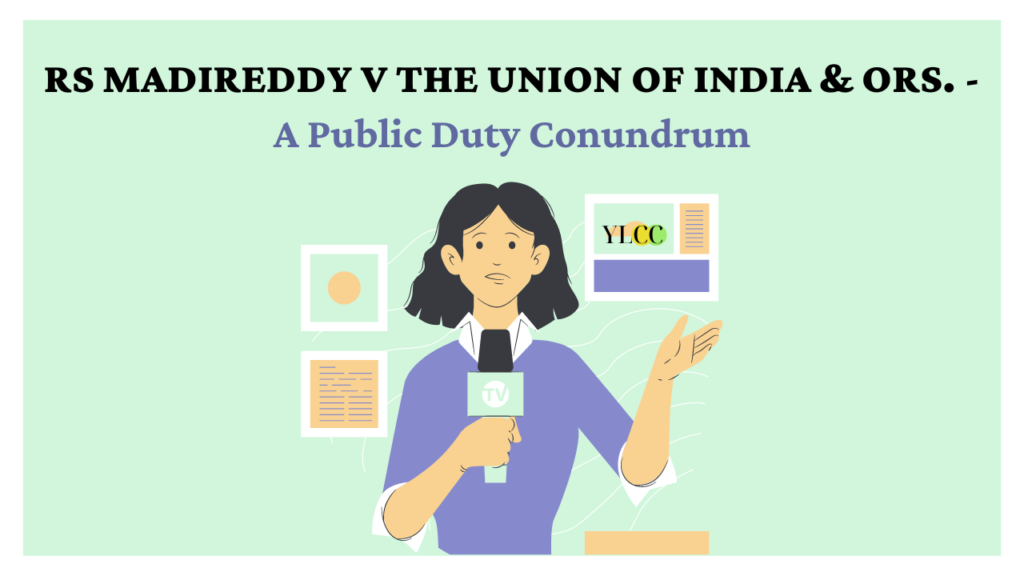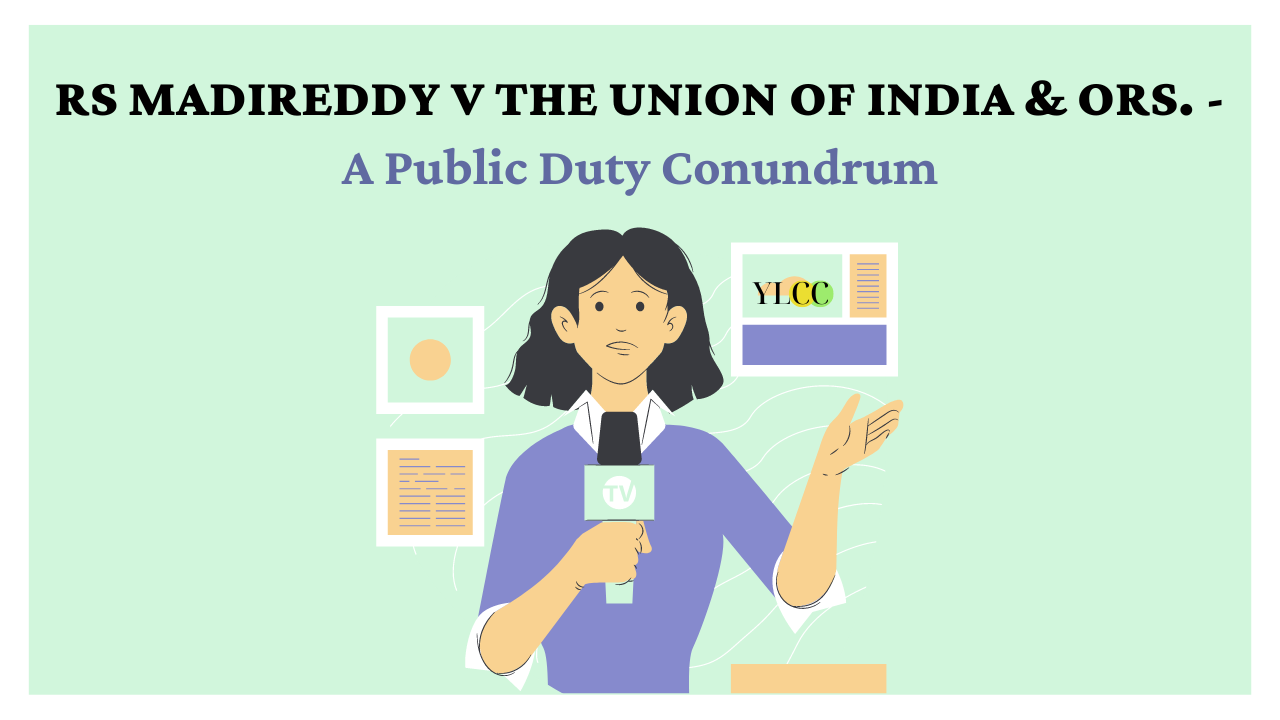
Introduction
The Supreme Court in RS Madireddy v Union of India issued notice to the Central Government and Air India Pvt. Ltd. against an appeal filed to the judgment of a division bench of the Bombay High Court which held that writ petitions against Air India Pvt. Ltd. will no longer be maintainable due to its privatization. The High Court in its judgment admitted that the cases had been instituted against Air India when it was considered “State” under Article 12 but due to the well settled provision of considering subsequent events i.e., privatization on 27th January, 2022, the High Court held that writs against the said entity were not maintainable henceforth.
One of the arguments furthered by the Petitioners counsel was regarding Air India exercising a public duty and hence being bound by writ jurisdiction. While the same was countered by the opposing counsel, the judgment did not dwell further into this as the bench held that this line of argumentation was not part of the written record and was nor brought out before during pleadings. The article seeks to analyze the merit in the said submission of the Petitioners counsel and observes whether the same could have tipped the scales otherwise.
Public Duty Argument
The Petitioners vehemently argued that Air India was performing a public duty and their employment had always been of public nature and hence merely because Government of India sold its shares in AIL to Talace Pvt. Ltd. the violation under Article 14 & 21 could not be sidelined and writs would be maintainable. Relying on the Apex Court judgment in Andi Mukta Sadguru Smarak Trust & Ors. VR Rudani & Ors., where it was held that under the writ of mandamus, the High Court could issue the same to “any person or authority” for the enforcement of fundamental rights or any other purpose. Furthermore, the court stated that form of the body concerned is not relevant, while duty imposed on the body is of paramount importance. Concludingly, if a positive obligation existed, mandamus could not be denied.
While the argument seems attractive, it does not correctly enunciate the meaning of public duty and the applicability of writ jurisdiction on a private entity. In Binny Ltd. & Anr. v V. Sadasivan & Ors. the Apex Court rightly held that, there cannot be any general definition of public authority or action which would mean that the interpretation of the same is left to the facts and circumstances of a case. But while defining a “public function” the court rightly held that it would relate to a body seeking to achieve collective benefit for the public or a section of the public & the same is accepted by the public as having authority to do so. In the present case by this definition Air India is not performing any public function rather it is now leading a commercial function which is again not privy to writ jurisdiction.
The RD Shetty Enunciation
While the Petitioners constantly claimed that private parties have been previously bound by writ jurisdiction, the same would not be relevant to the present matter relying upon the Apex Court in Ramana Dayaram Shetty v International Airport Authority of India whereby tests were propounded to judge whether a corporation can be considered as an instrumentality or agency of the state. Considering the nature of tests, Air India Pvt. Ltd. would not fall under any category as:
- Government of India does not own share capital in Air India
- There is no financial assistance provided by the State to Air India
- Air India does not enjoy any special status as granted by the State or protected by it
- State does not have deep and pervasive control over Air India
The only point of contention which seems relevant to the Petitioners stance is that an entity could be considered as state or agency of the same if it performs functions of public importance which is closely related to government functions. The present case would distinguish from the same relying upon the Apex Court judgment in Jatya Pal Singh & Ors. v Union of India & Ors. whereby the Court identically was required to consider whether VSNL was amenable to writ jurisdiction after privatization whereby the government still held 26% shares in the entity. The court observed that since the entity is providing services which could be made available upon payment of commercial charges, the same would not be a public function. Additionally, the court held that just because the functions originally performed by government are now being performed by a private entity, the same would not be sufficient to prove performance of public function. Similarly in the present case, Air India Pvt. Ltd. provides flight services which can be availed upon purchase of a ticket and hence relying upon the said doctrine and precedent, Air India Pvt. Ltd. is not performing a public duty.
Commercial Activity- Writ Jurisdiction
Furthering the argument of writ jurisdiction not being applicable to a private entity, the entity performing a commercial function also goes a long way in proving that its existence is meant for profit and not for collective interest of the public. In Federal Bank Ltd. v Sagar Thomas, an employee was terminated by a financial institution for wrongdoings and he challenged the same through writ jurisdiction. The Apex Court denied to accept the institution of a writ by holding that a private company operating as a scheduled bank cannot be termed as carrying on public duty. Furthermore, the laid down that any business or commercial activity cannot be classified as one falling in the category of those discharging duties of functions of public nature till the time, they have an impact on the economy of the country in general. It can be sufficiently agreed upon that post privatization of Air India; it does not exude any impact over the economy in general while it performs a commercial function as iterated above and also by the Respondents counsel before the High Court which was accepted by it.
Conclusion
While the Hon’ble Bombay High Court did not enter the realm of discussing public duty or its applicability in the present matter, it is pertinently clear from the arguments advanced herewith the even if the stance of public duty was taken or is taken before the Apex Court, the same is bound to not succeed because post privatization, Air India Ltd. exudes no public function and the commercial function being performed has no speck of public element involved.
YLCC would like to thank Nikhilesh Koundinya for his inputs in this article.






